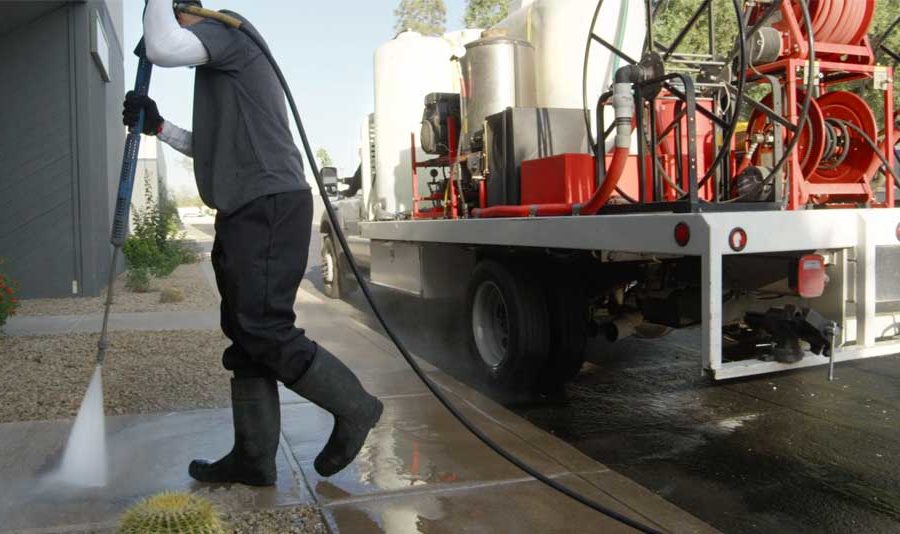Navigating Through Laws in Professional Pressure Washing
In the expanding world of commercial pressure washing, business owners must maneuver through a complex landscape of regulations that can substantially impact their operations. As the demand for specialized cleaning services increases, comprehending local laws and environmental guidelines is vital for maintaining compliance and ensuring the longevity of a pressure washing business.
If you are a newcomer or have been in the industry for years, knowing the legal requirements can assist you prevent costly fines and improve your reputation in the marketplace. This article will explore the different regulatory aspects that commercial pressure washers need to be mindful of, equipping you with the knowledge to operate within the boundaries of the law while delivering top-notch services to your clients.
Grasping Regional Guidelines
When involving yourself in commercial washing services, it is essential to familiarize yourself with local rules that regulate the activity. Such regulations can differ significantly between towns and may include prohibitions on water use, chemical release, and allowed service hours. Always check with your local government to confirm compliance, as breaches can lead to penalties and may obstruct your business activities.
Along with general regulations, you may need to obtain specific authorizations before performing pressure washing services, particularly in metropolitan regions or close to sensitive locations. Some regions require entities to have a license to operate in addition to extra authorizations related to eco-safety. Knowing these regulations supports adherence to the law but also strengthens your image in the field.
Finally, it is important to stay updated on the changes to laws that may affect your business cleaning operations. Regional laws can evolve due to eco-issues or changes in government policy, making it imperative for business operators to stay abreast. Becoming a member of trade organizations or local business groups can offer important assistance and facilitate in managing the compliance process effectively.
Adherence with Environmental Standards
Pressure washing firms must comply with various ecological laws designed to preserve natural resources and public health. One important aspect is the disposal of wastewater generated during service processes. Operators are often required to handle this liquid waste appropriately to prevent toxic chemicals from polluting nearby water bodies. This practice not only helps in maintaining compliance but also preserves the ecosystem.
Additionally, the type of detergents used in the pressure washing industry plays a significant role in environmental compliance. Professionals should choose eco-friendly detergents and biodegradable products whenever feasible. These alternatives reduce the likelihood of contaminating surface waters and soil, ensuring that the procedures do not harm surrounding wildlife or plant life. Knowledge of the particular laws regarding chemical usage is vital for maintaining legal compliance.
Moreover, providers should stay updated about community guidelines regarding noise pollution, especially when operating in housing zones or near ecologically significant sites. Many jurisdictions have specific guidelines on allowed noise levels during certain hours. By incorporating practices that minimize noise and using tools designed for quieter operation, commercial pressure washing companies can meet these standards while maintaining strong ties with the localities they serve.

Best Practices for Licensing and Permissions
When launching a commercial pressure washing business, it is crucial to know the license requirements in your region. Each state or municipality may have specific regulations that determine whether you need a license to run your business. Investigate local laws to verify adherence, which may involve obtaining a business registration as well as specific permits for pressure washing, especially if you plan to wash paths, driveways, or structures.
In furthermore to acquiring the required licenses, consider carrying appropriate insurance. Liability insurance is essential in case of any incidents or loss that may arise during your operations. This not only safeguards your business but also acts as a reassurance to customers, showcasing your competence and commitment to responsible service. Make sure to review your insurance policy to verify it includes all aspects of your work in business pressure washing.
Finally, keep your licenses and licenses up to speed. Laws may evolve, and periodic updates may be required. Maintain organized records of your permits and licenses, allowing for quick access and ensuring that you are consistently operating within the legal framework. This diligence not only safeguards your operation but also establishes trust with your customers, positioning you as a dependable choice in the commercial pressure washing market.